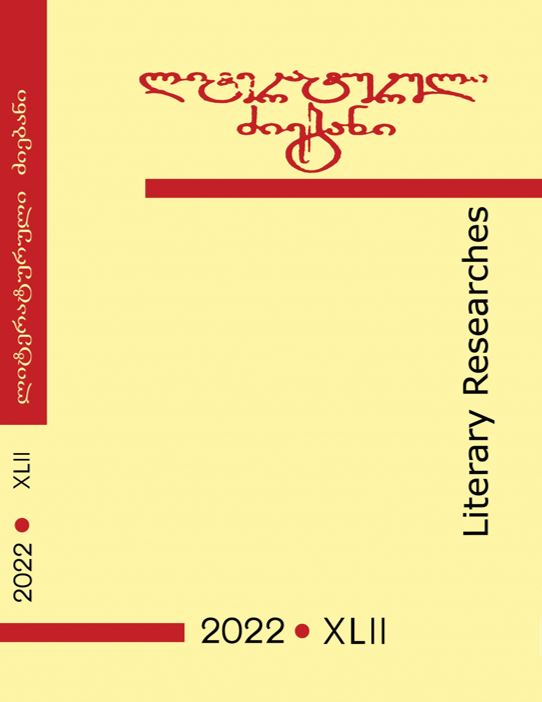The Main Markers of the Mental Map of Soviet Bilingual Migrants in the Post-Soviet Period: Georgian-Russian Experience
გამოქვეყნებული 2022-04-30
საკვანძო სიტყვები
- რუსულენოვანი მწერლები,
- საბჭოთა ბილინგვი მიგრანტები,
- მენტალური რუკის მარკერები,
- სახლი,
- ისტორიული სამშობლო
როგორ უნდა ციტირება
ანოტაცია
Soviet and post-Soviet experience is important to study the features of the worldview of bi – and multilinguals. The desire to create a new cultural identity – the Soviet people, could be described as the process of “Soviet mini-globalization”, involving several generations and nationalities of the USSR, on which territory most of the processes typical of economic and cultural globalization were recorded, including intensive internal migration (rotation, forced/deportation, economic, family/individual) and integration processes. Bi– and polylingualism was common: majority of population spoke the state language (Russian), the union republics (at the place of residence) and the native language of historical motherland (among ethnically non-Russian population). Although Russian was often the first native language, for so-called Russian-speaking population of the Union republics was characteristic liminal or hybrid consciousness of a multicultural type.
The collapse of the USSR, establishment of rigid borders of independent states significantly narrowed the boundaries of habitual life and cultural space of Russian-speaking writers, now living not in the territory of a single country
(USSR), but in neighboring independent states. The special conditions, when people found themselves separated from their historical motherland, contributed that their works, as a rule, are not characterized by the main indicators typical for the literature of migrants, such markers of cultural identity as language, religion and territory -“do not work”.
The article analyzes the main artistic markers of the mental map of modern Russian authors – immigrants from Georgia and their descendants. These are the concepts of own town and home.
The narrative of Moscow author Sopiko/Sofia Bezhanova’s poems dedicated to Tbilisi captures bilingualism: there are Georgian words and expressions in Russian transcription and their translation. The author’s commentary, explaining unknown to Russian reader realities and intertextual links between the imagery of the poem and words of Russian translations of Georgian songs, is also noteworthy. All this creates a special, “Georgian” discourse in Russian-language text. The ancient city is positioned as a “father”. Psychological time transports the reader to Tbilisi in the 1980s, and the concept of nostalgia for a lost motherland acquires additional connotations of longing for lost youth and happiness of first love.
In some cases, Tbilisi acts as a concept of historical motherland, memory of which should be passed on to subsequent generations. For example, Dimitri S/Dimitri Shengelia/ positions himself as a descendant of Tbilisians. He left the city in his early childhood, but for him Tbilisi is a home, family nest, the memory/love for which the poet must pass on to his son, born in the North.
Second-generation migrants born in Russia after formation of independent states are not characterized by typical bifurcation of the concept of motherland in hybrid consciousness, Georgia remains a historical motherland /land of ancestors/. In the work of the St. Petersburg poet Giorgi Khubulava, Tbilisi is no longer correlated with a mental map, but acquires the significance of a symbol of the struggle for independence.
The study shows that the main markers of conceptosphere coincide in the works of Russian-speaking writers living in Georgia and abroad.

